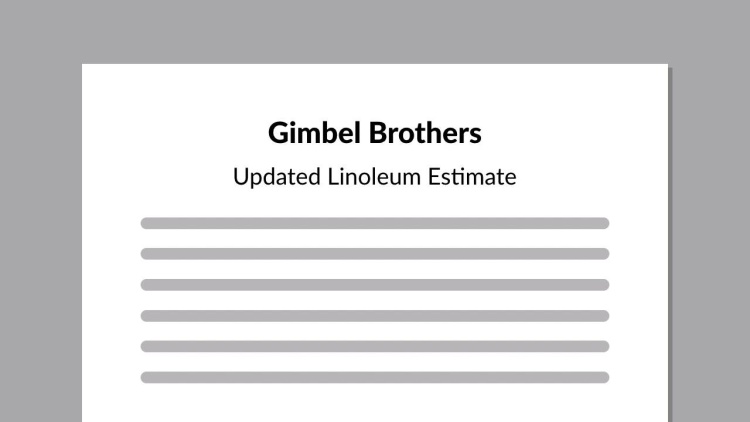James Baird Co. v. Gimbel Bros., Inc.
United States Court of Appeals for the Second Circuit
64 F.2d 344 (1933)
- Written by Jamie Milne, JD
Facts
Gimbel Bros., Inc. (Gimbel) (defendant), a linoleum supplier, learned of a construction project being contemplated by the State of Pennsylvania. Gimbel identified the general contractors likely to bid for the project, including James Baird Co. (Baird) (plaintiff). Gimbel then sent those contractors quotes for linoleum, stating that Gimbel would provide all the linoleum for the project at a stated price if Gimbel’s offer was accepted by the winning bidder promptly after the project was awarded. In calculating its offer, Gimbel underestimated the amount of linoleum required by half. Upon realizing its mistake, Gimbel telegraphed notice to all contractors that Gimbel was withdrawing the offer and would substitute a new offer for twice the price. On the same day, but before receiving Gimbel’s notice of withdrawal, Baird submitted its bid for the Pennsylvania project using Gimbel’s original quoted price. Baird was awarded the construction contract and formally accepted Gimbel’s original offer two days after receiving a letter confirming Gimbel’s withdrawal of the offer. Gimbel refused to recognize a binding contract with Baird and did not supply the required linoleum. Baird sued Gimbel for breach of contract. The trial court held that there was no contract, and Baird appealed to the United States Court of Appeals for the Second Circuit.
Rule of Law
Issue
Holding and Reasoning (Hand, J.)
What to do next…
Here's why 907,000 law students have relied on our case briefs:
- Written by law professors and practitioners, not other law students. 47,100 briefs, keyed to 996 casebooks. Top-notch customer support.
- The right amount of information, includes the facts, issues, rule of law, holding and reasoning, and any concurrences and dissents.
- Access in your classes, works on your mobile and tablet. Massive library of related video lessons and high quality multiple-choice questions.
- Easy to use, uniform format for every case brief. Written in plain English, not in legalese. Our briefs summarize and simplify; they don’t just repeat the court’s language.





